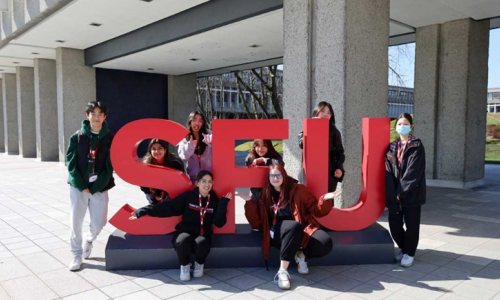
One of the most important roles for a Co-op supervisor is to provide feedback. Students not only want this feedback but also need it.
Sometimes a student works an entire term without having any idea how they are doing. Often this is because the supervisor is genuinely too busy to give feedback or the supervisor thinks that no news is good news. However, taking the time to tell a student that their good work is noticed and appreciated is a simple but powerful way to encourage them to have confidence in their skills and abilities. This positively impacts their attitude and motivation and can encourage loyalty, which is especially important if an organization views Co-op work terms as part of a longer-term recruitment strategy. The more specific the feedback the better, but even a “good job on that report you put together last week” can be enough for a Co-op student to know that they are on the right track and that their supervisor is pleased with the way the work term is going.
What about if a Co-op student isn’t doing a “good job”? Constructive criticism, when done well, can make an underperforming Co-op student an exceptional one - as long as the goal is to improve future performance rather than express disappointment. If comments are specific and framed around facts related to the job and the student’s learning objectives, it is more likely that the student will receive the message without feeling defensive or embarrassed, and the student will feel encouraged to do better.
Constructive feedback works best when there is two-way communication. Allowing a Co-op student to evaluate what they did wrong and then helping them find solutions to the problem will have a far greater impact on their learning and future performance than if the supervisor tells the student what they did wrong and how they can correct it. For example, a supervisor might approach the student immediately after the incident, and open with, “I notice the numbers don’t add up here. What’s your best guess as to why that is?” and then allow the conversation to unfold from there.
Another benefit to a supervisor holding short but frequent feedback sessions is knowing when the student is ready to take on more responsibilities. If the student is completing tasks on time or ahead of schedule, and completing them well, then the supervisor can take this as a sign that the student is ready for additional challenges. If there are no additional projects or assignments available, perhaps a colleague in another department might appreciate additional help. Sometimes the Co-op student comes up with a project proposal that a supervisor didn’t even think about. If there truly isn’t any other work the student can take on, another way to add value and meaning to a student’s work term is by offering an opportunity to sit in on staff meetings, participate in more training, or attend networking events.
Beyond the Blog
-
Check out the complete Creating a Great Co-op Experience series to learn best practices to take during a co-op semester.















